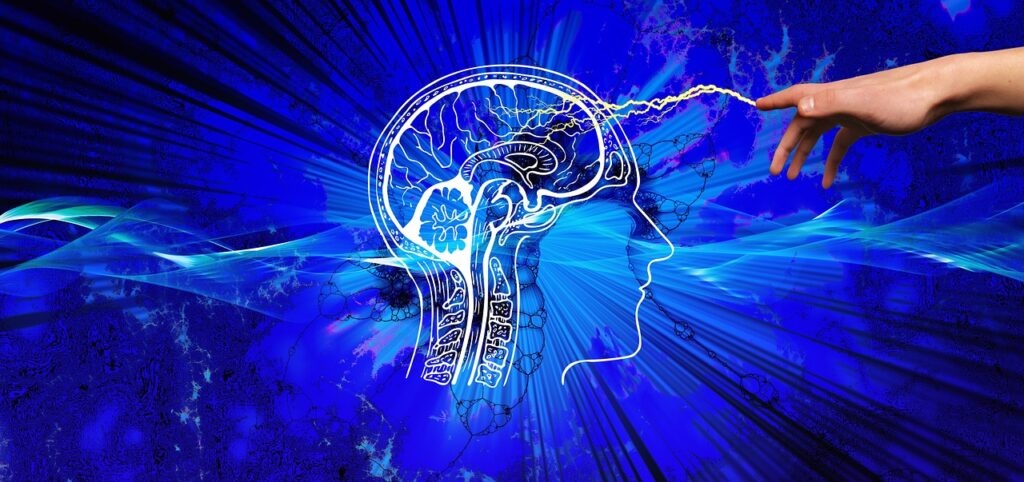INTRODUCTION OF ANGER IN ADOLESCENTS
Adolescence, a transition period from childhood to adulthood is an exciting phase of life that is passed by various physiological, psychological, and emotional changes. During this changeful period, teenagers often struggle with intense emotions, and one of the most common and challenging emotions they face is anger.
WHAT IS AHEAD
In this article, let us discuss various aspects relevant to anger management in teenagers. We’ll go deeply into the core of this subject with empathy and wisdom, explaining not just the “what” and “why” but also the “how” of supporting adolescents in managing their anger in a sometimes overwhelming world.
THE ENIGMA OF ADOLESCENT ANGER

Adolescence is a time when young minds are evolving, and emotions tend to run high. It is very important to understand the mysterious nature of rage during adolescence before we delve into the depth of this emotional sea. Let’s be clear from the start: anger is not inherently negative. It’s a primal emotion, a natural response to the innumerable stimuli that hit a young mind in the race of growth. Anger can act as a barrier of defense, a boundary-setting statement, or even a spark for change. Yet, when anger spirals out of control or manifests in ways that harm the adolescent or those around them, it morphs into a formidable challenge.
THE PSYCHOLOGY BEHIND ADOLESCENT ANGER

Firstly we must understand the psychology behind complex emotions if we are to comprehend the problems that teenagers have with anger. Adolescents often experience anger due to the following factors:
Hormonal Changes: Puberty brings about significant hormonal shifts, which can lead to mood swings and heightened irritability. These biological changes can transform a mild breeze of annoyance into a storm of anger.
anger in adolescents

The Weight of Peer Influence: Adolescents are highly influenced by their peers. Peer pressure, bullying, or social exclusion can evoke anger and resentment.
anger in adolescents
Identity Formation: Adolescents are usually in the process of discovering their identity and proving themselves and the confusion and frustration that come with this self-discovery can cause anger. The struggle to prove oneself often ignites sparks of anger.
Family Dynamics: Family conflicts and the struggle for independence can result in anger issues among adolescents.
anger in adolescents

Academic Stress & Alarms: The pressure to perform well academically can lead to frustration and anger when expectations aren’t met.
UNMASKING THE SIGNS OF ANGER
Recognition is the first step towards healing. If one can identify anger issues signs in early adolescence stages then it can help in early intervention and solution. Keep an eye on some of the common indicators:

Frequent outbursts of anger: Frequent eruptions of anger, often disproportionate to the triggering event.
anger in adolescents
Physical aggression or violence: Resorting to violence or aggression as a means of expression.
anger in adolescents


Social withdrawal: Withdrawing from social interactions and emotional connections.
anger in adolescents
Irritability and moodiness: A persistent state of irritability and unpredictable mood swings. (Image by garetsvisual on Freepik)
anger in adolescents


Concentrating Difficulty: Facing Difficulty in focusing or staying on task.
anger in adolescents
Substance abuse and Self-destructive behavior: The use of substance abuse in teenagers can intensify existing anger issues, as the use of drugs or alcohol can weaken their ability to handle emotions, leading to increased anger outbursts that may also lead to destructive or sometimes self-harming behavior.

THE CRITICAL ROLE OF EMOTIONAL INTELLIGENCE

Emotional intelligence, often called EI plays an important role in understanding and managing anger in adolescents along with all other age groups. Adolescents with high EI possess the ability to understand, manage, and harness their emotions constructively. Emotional Intelligence helps them to deal with all emotions including anger more skillfully.
STRATEGIES TO DEVELOP EMOTIONAL INTELLIGENCE
Embracing Self-Awareness: Adolescents should be encouraged to recognize and mark their emotions. Penning down emotions (journaling) can be really helpful in this journey of self-discovery.

The Power of Empathy: Adolescents should be taught to understand the perspectives and feelings of other persons. Once they start understanding others’ perspectives and feelings then they can prevent misunderstandings that often spark anger.
anger in adolescents
Stress Management: Help adolescents develop healthy coping mechanisms, such as deep breathing exercises, meditation, or engaging in creative activities.
anger in adolescents

The Art of Assertive Expression: Teach assertive communication to express feelings and needs effectively without resorting to anger. Expressing feelings and needs clearly and respectfully reduces the need for anger as a voice.
anger in adolescents
MASTERING THE ART OF ANGER MANAGEMENT
Anger management is a skill everyone should learn and become perfect with practice over time and learn to respond rather than react. Adolescents can learn to wield this powerful emotion like a well-crafted tool rather than a weapon of destruction. Here are some practical techniques for adolescents:

The Breath of Serenity: When anger surges, a deep breath can act as a lifeline. Adolescents can do meditation practices and breathing exercises like breathing slowly and deeply, inhaling through the nose, and exhaling through the mouth. (Image by Freepik)
The Pause That Heals: Suggest taking a break from the situation causing anger. Adolescents can use this time to reflect on their emotions and return with a clearer perspective on the issue when they feel calmer. (Image by garetsvisual on Freepik)
anger in adolescents


The Dance of Release: Physical activity can become an effective remedy to reduce or cope up with anger. Teenagers should be motivated to take part in activities like jogging, dancing, or brisk walks to release built-up tension and reduce anger.
anger in adolescents
Seeking Support: Urge adolescents to reach out to a trusted adult, friend, or therapist when anger becomes overwhelming. Sometimes, sharing emotions is the most cathartic release.
anger in adolescents

SUMMARY
In a nutshell, we must be mindful of how vital it is for adolescents’ general growth and welfare that we recognize and handle their anger issues well in time.
We can help them navigate this stage of life more smoothly and successfully by identifying the signs and psychological roots of anger issues, cultivating emotional intelligence, and training them in the usage of anger management techniques in keeping in mind real world situations. Keep in mind that dealing with rage issues early might help our teenagers have better futures and healthy emotional development.
In case of any objection or query regarding this article about anger in adolescents, please feel free to contact us.
